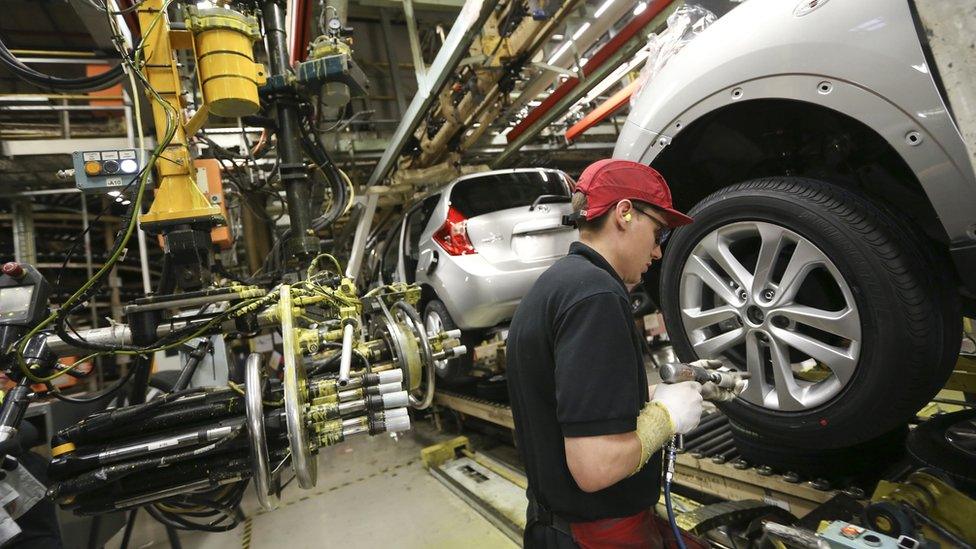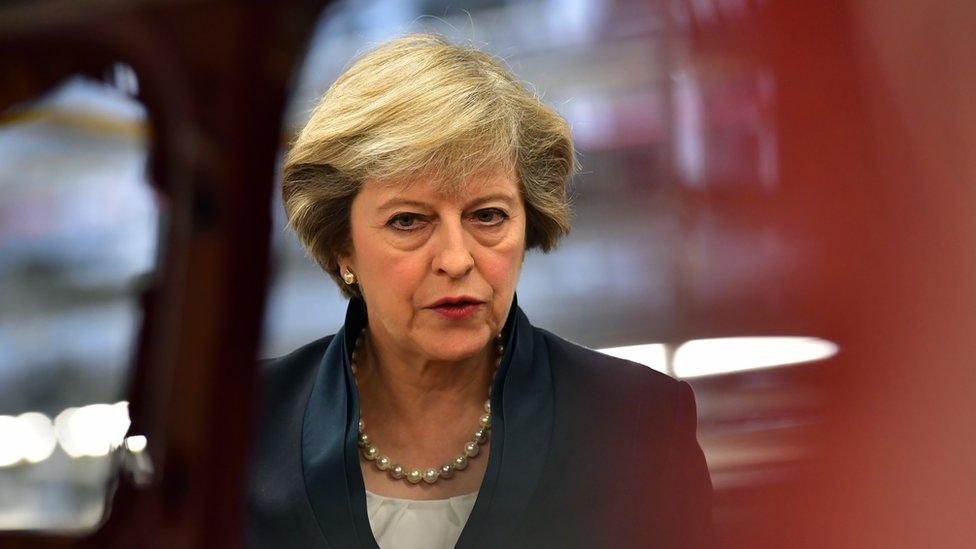Japan fires warning shot over Brexit
- Published

What do Sunderland, Swindon and Burnaston in Derbyshire have in common? They all voted to leave the EU and they are all home to major Japanese-owned car manufacturing plants.
Nissan, Honda and Toyota were all encouraged by governments of every stripe over many years to use Britain as a base for exporting cars made in the UK to the rest of the European Union.
It has been a fruitful partnership for decades, but one which a warning shot from the Japanese government has now made abundantly clear is under threat from the UK's vote to leave the EU.
Both UK government officials and British representatives of Japanese manufacturers were caught off guard by the timing of the pointed communique released just before the prime minister met other global leaders at the G20 summit in China.
Its 15 pages contain the clearest wish-list so far of what foreign investors want from the post-Brexit negotiations.
'Must have'
Car manufacturers are particularly sensitive to tariffs, as components are usually imported from the EU before being assembled and exported back to the union. Any frictional cost to this two-way movement threatens to throw sand into the engine of that process - twice.
Tariff-free access to the single market is not a "nice to have"; it' is a "must have". That means that one potential option for the UK's relationship with Europe will not work for Japan.
The WTO model - seen by some as the easiest to achieve in the short term, would mean the UK reverts to rules imposed by the World Trade Organisation - rules that could impose tariffs of up to 10% on imports and exports. That is a total non-starter, according to sources in the UK car manufacturing industry.
Prominent Brexiteers such as Sir Iain Duncan Smith has maintained it is very unlikely that European car manufacturers would want to include tit-for-tat tariffs contests in a bespoke negotiated settlement, but the speedy off-the-peg WTO option might make them unavoidable.
The Japanese document also calls on the UK to "maintain access to workers who are nationals of the UK or the EU", warning of "great turmoil" if EU citizens could not freely travel between - and stay in - the UK and continental Europe.

That will be tough to guarantee, as Theresa May seems to favour an approach that starts with border controls and works backwards from there. She is also thought to be turning away from a points-based migration test in favour of an as-yet unclear alternative.
Japan has been an investor in UK car manufacturing for decades. Recently the Japanese government has felt that contribution has been slightly overlooked as the reddest of red carpets have been unrolled for China.
Perhaps it is not surprising that with a new hesitancy over closer links with China in sensitive industries like nuclear and data storage, Japan is taking this opportunity to remind Mrs May who the UK's old mates really are.